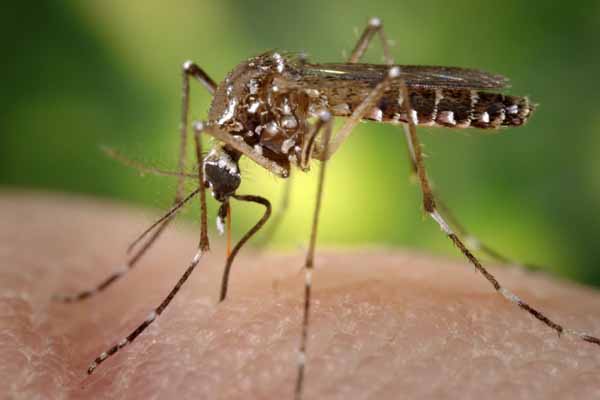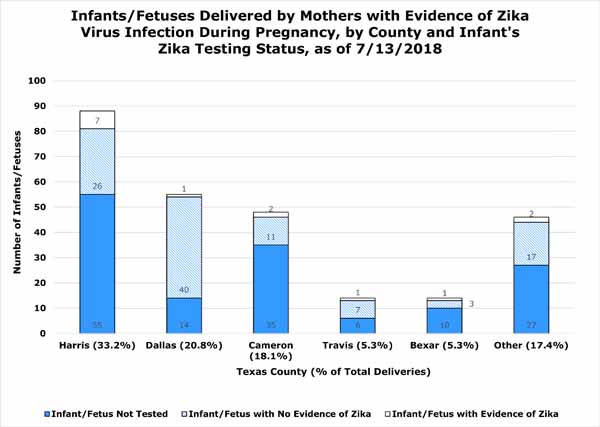
Officials have identified 265 Texas women who had evidence of a Zika infection while pregnant, a new report from the Texas Department of State Health Services (DSHS) says.
Of those cases, 17 infants and fetal losses, or about 6 percent of all pregnancy outcomes, had birth defects consistent with Congenital Zika Syndrome, according to the report. The national rate reported by the U.S. Zika Pregnancy Registry is 5 percent, officials said.
The report uses data from the Centers for Disease Control and Prevention’s national registry, which lists pregnancy outcomes from Dec. 1, 2015, to March 31, 2018. As of July 13, no new cases were reported, officials said.
The majority of mothers with evidence of Zika infection were found in Harris County: 88 cases, including seven infants or fetuses with evidence of Zika, the report says. Dallas County had about 55 cases, followed by Cameron County with 48.

Zika is a mosquito-borne virus that can cause fever, rash, muscle and joint aches, and conjunctivitis. Although most people exposed won’t develop any symptoms at all, the virus has been linked to microcephaly.
Texas cases skyrocketed in 2016 — when 315 cases were reported — but have been declining since. As of Sept. 4, only three cases have been reported in 2018: Two in Williamson County and one in Collin County. That’s down from 55 cases reported in 2017.
Although Texas’ warm climate makes the state a hotbed for vector-borne diseases such as Zika, tracking those diseases has been challenging.
Despite disease surveillance by the Texas Department of State Health Services (DSHS), vector-borne illnesses are underreported. Complicating that is the difficulty in diagnosing some of the diseases, which can look like other illnesses.
To help health officials better understand vector-borne diseases in Texas, the Texas Medical Association backed several bills during the 2017 Texas legislative session that would help control vectors and improve reporting.
House Bill 3576, which was passed into law, calls for the Department of State Health Services (DSHS) to track, study, and prevent the spread of Zika and other communicable diseases. DSHS now tests pregnant women in nine Texas counties along the U.S.-Mexico border where Zika is most likely to spread. DSHS and the local health departments follow up on positive results.
Find more information on Zika and other infectious diseases on TMA’s website.